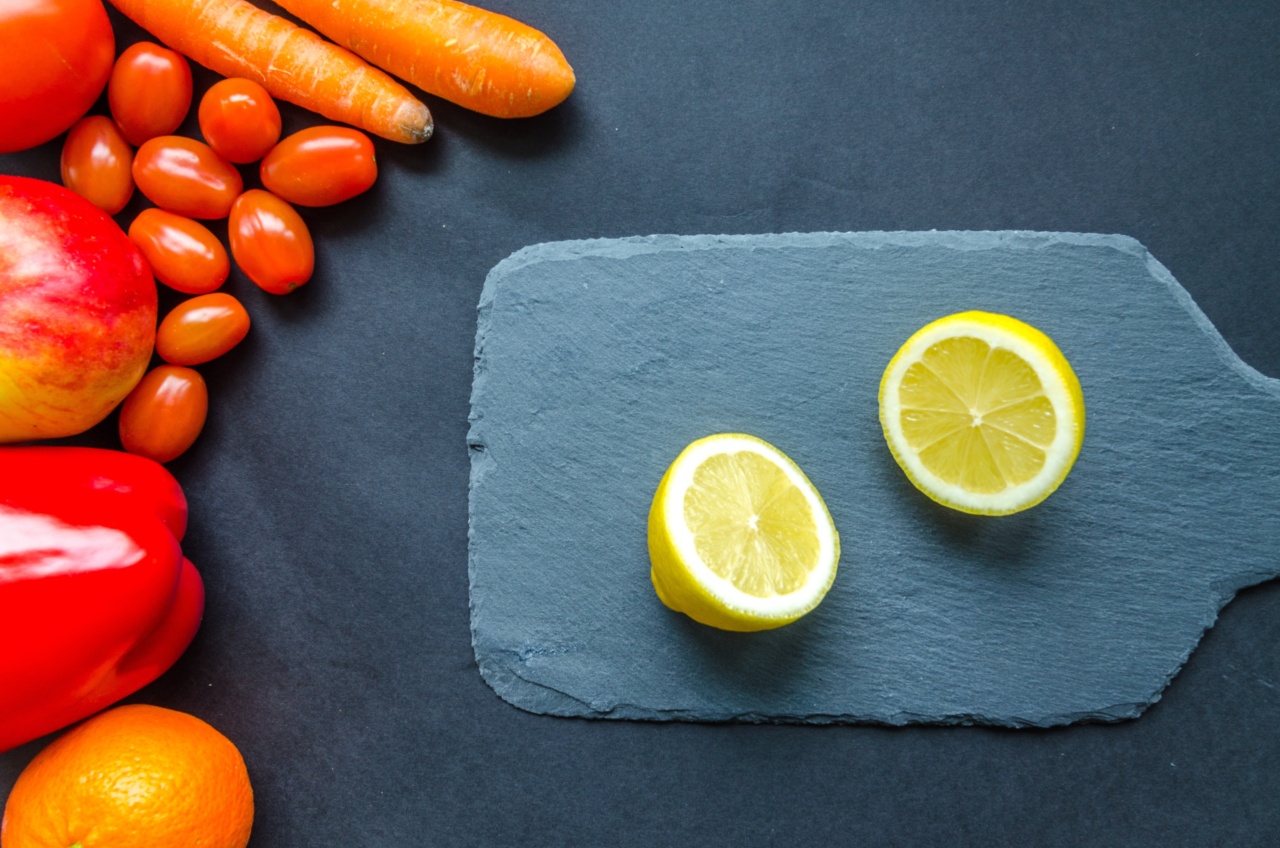Eating a healthy and balanced diet is crucial during pregnancy to ensure the proper growth and development of both the mother and the baby.
Fruits and vegetables are packed with essential nutrients, vitamins, and minerals that are beneficial for both the expectant mother and the growing fetus. Incorporating a variety of fruits and vegetables in your daily meals can help provide the necessary nutrients for a healthy pregnancy.
This guide will provide you with information on the importance of fruits and vegetables during pregnancy and tips on how to incorporate them into your diet.
The Importance of Fruits and Vegetables During Pregnancy
Fruits and vegetables are a rich source of vitamins, minerals, dietary fiber, and antioxidants. These nutrients are essential for the development of the baby’s brain, bones, and organs, as well as for maintaining the overall health of the mother.
Here are some key benefits of consuming fruits and vegetables during pregnancy:.
1. Provide Essential Vitamins and Minerals
Fruits and vegetables are packed with vitamins and minerals that are crucial for the healthy development of the baby. Folate, found in leafy green vegetables and citrus fruits, is vital for the early development of the baby’s neural tube.
Vitamin C, abundant in citrus fruits, berries, and bell peppers, helps in the absorption of iron and supports the immune system. Calcium, found in leafy greens, broccoli, and oranges, aids in the development of the baby’s bones and teeth.
2. Aid in Digestion and Prevent Constipation
Pregnancy hormones can slow down digestion, leading to constipation. Fruits and vegetables are rich in dietary fiber, which can help regulate bowel movements and prevent constipation.
Including fiber-rich fruits and vegetables, such as apples, pears, berries, carrots, and broccoli, can promote a healthy digestive system and alleviate constipation.
3. Provide Antioxidants
Antioxidants help protect the body’s cells from damage caused by free radicals. During pregnancy, consuming fruits and vegetables rich in antioxidants can help reduce the risk of pregnancy complications and promote a healthy pregnancy.
Berries, spinach, kale, and sweet potatoes are excellent sources of antioxidants that can boost your immune system and support the development of a healthy placenta.
4. Control Weight Gain
Weight gain is a natural part of pregnancy, but excessive weight gain can increase the risk of complications such as gestational diabetes and high blood pressure.
Fruits and vegetables are low in calories and high in nutrients, making them an excellent choice for maintaining a healthy weight during pregnancy. They provide essential vitamins and minerals without adding excessive calories to your diet.
5. Hydration and Swelling Reduction
During pregnancy, proper hydration is essential for the overall health of the mother and baby. Fruits and vegetables are naturally high in water content, which can help you stay hydrated.
Additionally, certain fruits and vegetables, such as cucumbers, watermelons, and celery, have diuretic properties that can reduce swelling and prevent water retention, which is common during pregnancy.
Tips for Incorporating Fruits and Vegetables Into Your Diet
Now that you understand the importance of fruits and vegetables during pregnancy, here are some practical tips for incorporating them into your daily diet:.
1. Start your day with a fruit or vegetable
Add sliced fruits like bananas, strawberries, or blueberries to your cereal or oatmeal. Alternatively, you can blend fruits into a smoothie or make a vegetable omelet to kickstart your day with essential nutrients.
2. Snack on fruits and vegetables
Keep a bowl of washed and cut fruits on your kitchen counter or pack portable fruits like apples, oranges, or grapes for when you are on the go.
Consider pairing your fruits with a source of protein, such as Greek yogurt or a handful of nuts, for a satisfying snack that will keep you energized.
3. Incorporate vegetables into your main meals
Add a variety of colorful vegetables to your main meals. For example, include a side salad or steamed vegetables with your lunch and dinner.
Try stir-fried vegetables, roasted vegetables, or vegetable-based soups and stews to make your meals more nutritious and flavorful.
4. Swap unhealthy snacks with vegetable alternatives
Instead of reaching for chips or sweets, opt for vegetable-based snacks like carrot sticks with hummus, cucumber slices, or cherry tomatoes. These crunchy and refreshing alternatives are packed with vitamins and minerals while being low in calories.
5. Experiment with fruits and vegetables in your cooking
Be adventurous in the kitchen and experiment with different fruits and vegetables in your recipes.
Add fruits like diced mango or pineapple to a chicken stir-fry for a burst of sweetness, or incorporate vegetables like zucchini or eggplant into lasagnas or pasta dishes.
6. Stay hydrated with fruit-infused water
Drinking an adequate amount of water is crucial during pregnancy. If regular water seems bland, infuse it with slices of fruits like lemon, lime, or cucumber to add a refreshing twist. This can help you stay hydrated while enjoying a subtle fruit flavor.
Incorporating Organic Fruits and Vegetables
Opting for organic fruits and vegetables during pregnancy can limit your exposure to pesticides, hormones, and other chemicals that may pose potential risks to your health and the health of your baby.
If possible, choose organic options, especially for produce that is commonly sprayed with pesticides, such as strawberries, apples, spinach, and bell peppers. However, if organic options are not accessible or affordable, it is still important to prioritize consuming a variety of fruits and vegetables rather than avoiding them altogether.
Conclusion
Incorporating a variety of fruits and vegetables into your diet is essential for a healthy pregnancy.
These nutrient-dense foods provide the necessary vitamins, minerals, dietary fiber, and antioxidants that support the growth and development of the baby, while also ensuring the overall health and well-being of the mother. By following the tips mentioned above, you can easily incorporate fruits and vegetables into your daily meals and enjoy a nutritious and balanced diet during pregnancy.






























